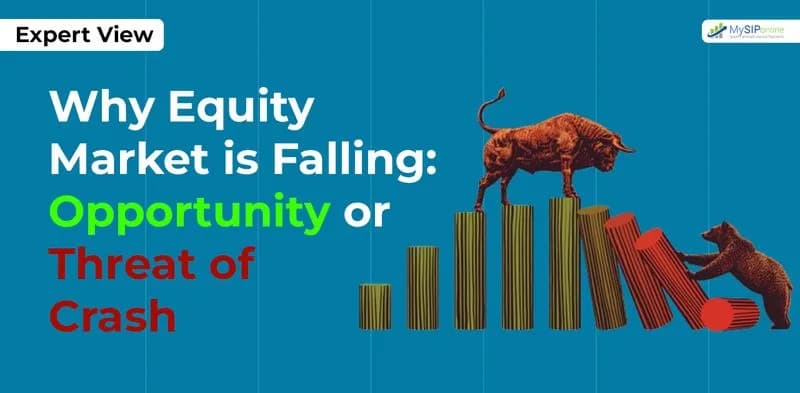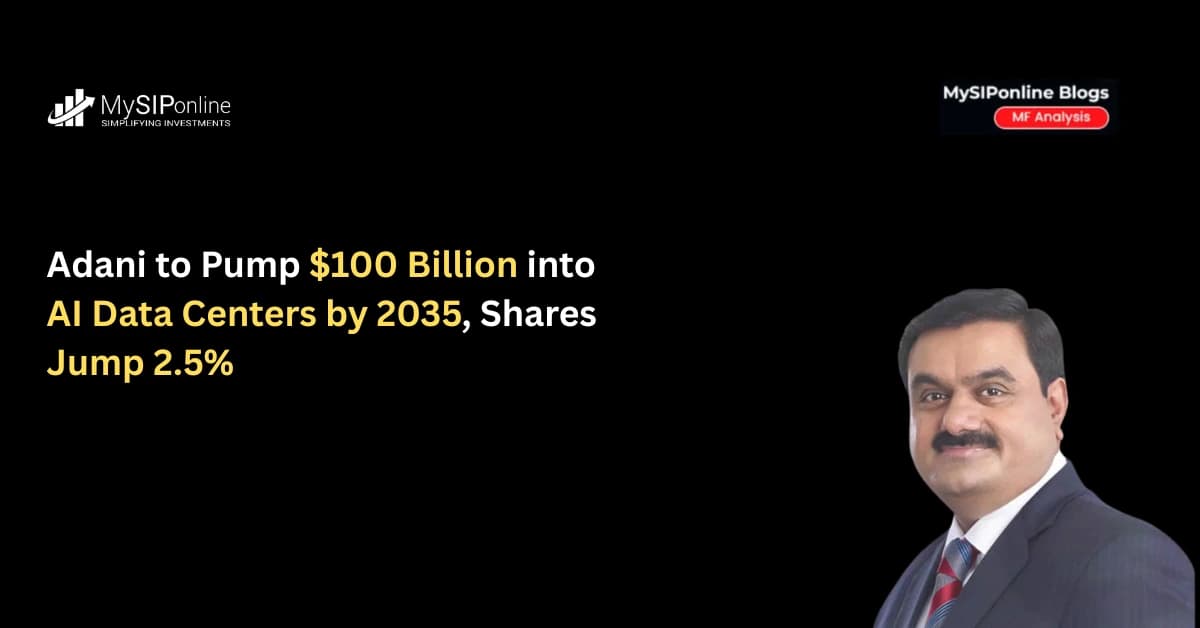Table of Contents
- ICICI Prudential Multi-Asset Fund - Growth
- Axis Multi Asset Allocation Fund - Regular Plan - Growth Option
- SBI Multi Asset Allocation Fund - Regular Plan - Growth
- HDFC Multi-Asset Fund - Growth Option
- Edelweiss Multi Asset Allocation Fund - Reg (G)
Introduction
Lately, the equity market has experienced a significant decline, especially in Small and Mid-Cap stocks.
Before the market decline, we posted a video in which we provided a timely update, suggesting that a market fall was possible and that small and mid-cap stocks would be affected.
We also discussed how to adjust our investment strategy in case of a market downturn.
In this blog, we will conduct a comprehensive analysis to understand the reasons behind the market decline and what is currently happening. Our goal is to help you avoid repeating past mistakes in your investments.
First, we must understand that the stock market is influenced by two main factors: Liquidity and Sentiments.
Liquidity refers to the low of money in and out of the market, while sentiments reflects investors attitude towards the market. Both of these factors are inter wined with economic growth.
It’s confirmed that a market crash occurs when liquidity and sentiments both turn negative. Therefore, we need to assess the current situations regarding liquidity and sentiments, which will depend on the state of economic conditions.
Now, let’s look at three significant global events that could have a substantial impact on the markets.
1. Geopolitical conflicts
First, there are ongoing geopolitical issues, including the Russia-Ukraine war and the Israel-Hamas conflict.
Our understanding and research indicate that Russia and china may have long-term intentions in these conflicts, possibly aimed at challenging the U.S. and the U.K., with the goal of becoming artic superpowers.
This could involve controlling resources an d established export corridors to gain global dominance.
The Israel-Hamas conflict appears to be a regional war, where the U.S. and Israel seek to maintain control in the middle east.
While we may not be political experts, we want to understand the potential impact of these conflicts on India and the stock market.
In both of these wars, the most significant impact is likely to be on oil prices, as India is major oil-importing country.
Rising oil prices can lead to higher inflation, which is detrimental to both the general public and corporations.
However, recent developments, such as oil supply cuts by Saudi Arabia and Russia, may affect oil prices globally.
Additionally, Russia is demanding that India pay for oil in Chinese currency, which could have implications for India’s oil imports.
Furthermore, India’s long-term plans for establishing export and import corridors to the middle East and Europe may be affected by these geopolitical conflicts, potentially impacting the country’s economic growth.
In long-term, these factors could lead to weak sentiments among foreign and domestic institutions in the Indian Market, although the impact is expected to be gradual.
U.S. Debt Problem
The united states have a history of driving economic growth through credit. In challenging times, they inject money into the economy, a strategy known as quantitative easing. However, this time, expected growth did not materialize, leading to significant increase in the U.S. debt-to-GDP ratio and uncontrolled inflation.
To combat this, the U.S. is raising interest rate to curb inflation. This move has pushed bonds yields to a 16-year high.
When interest rate rise, bond prices fall, making existing bonds less attractive.
This affects bond yields, making them more appealing to investors.
As a result, institutional and foreign investors are shifting their investments from equities to bonds, leading to lower liquidity in the equity markets.
Chinese Economic Ups and Downs
China’s economic growth heavily relies on manufacturing exports and internal infrastructure development.
After supply chain disruptions caused by the pandemic, global companies started considering alternatives to relying solely on china.
This led to a decline in china’s economic growth and a drop in real estate prices. Foreign investors shifted their investments from china to India, affecting India’s stock market.
However, China has reopened its economy and provided stimulus, resulting in a resurgence of its economic growth.
This could negatively impact India’s economy and increase volatility in the stock market if foreign investors develop positive sentiments for china.
Main points to consider
So, in this particular situation what should investor do, should you ignore or invest in small cap and Mid-cap, the best thing is that for long term you can do Online SIP.
Do not panic and withdraw money.
Instead, you can shift money to safe asset classes or categories like debt or hybrid funds.
Prefer good funds that manages fund well and whose track record is good.
And lastly, increase the patience to tolerate risk.
Conclusion
A combination of high oil prices, rising U.S. yields, and china’s growth revival presents challenges for the Indian economy and stock market.
However, India’s strong domestic economic factors, government policies, infrastructure development, credit growth, and positive consumer sentiments may provide support.
The reserve bank of India has managed liquidity well, and a significant market crash is only expected if global conditions worsen. Otherwise, a time correction is more likely, with the market neither experiencing a significant decline nor rising sharply.
As an investor, it’s essential to manage your investments considering these global and market conditions.
Read More – SBI Multi Asset Allocation Fund








.webp&w=3840&q=75)


